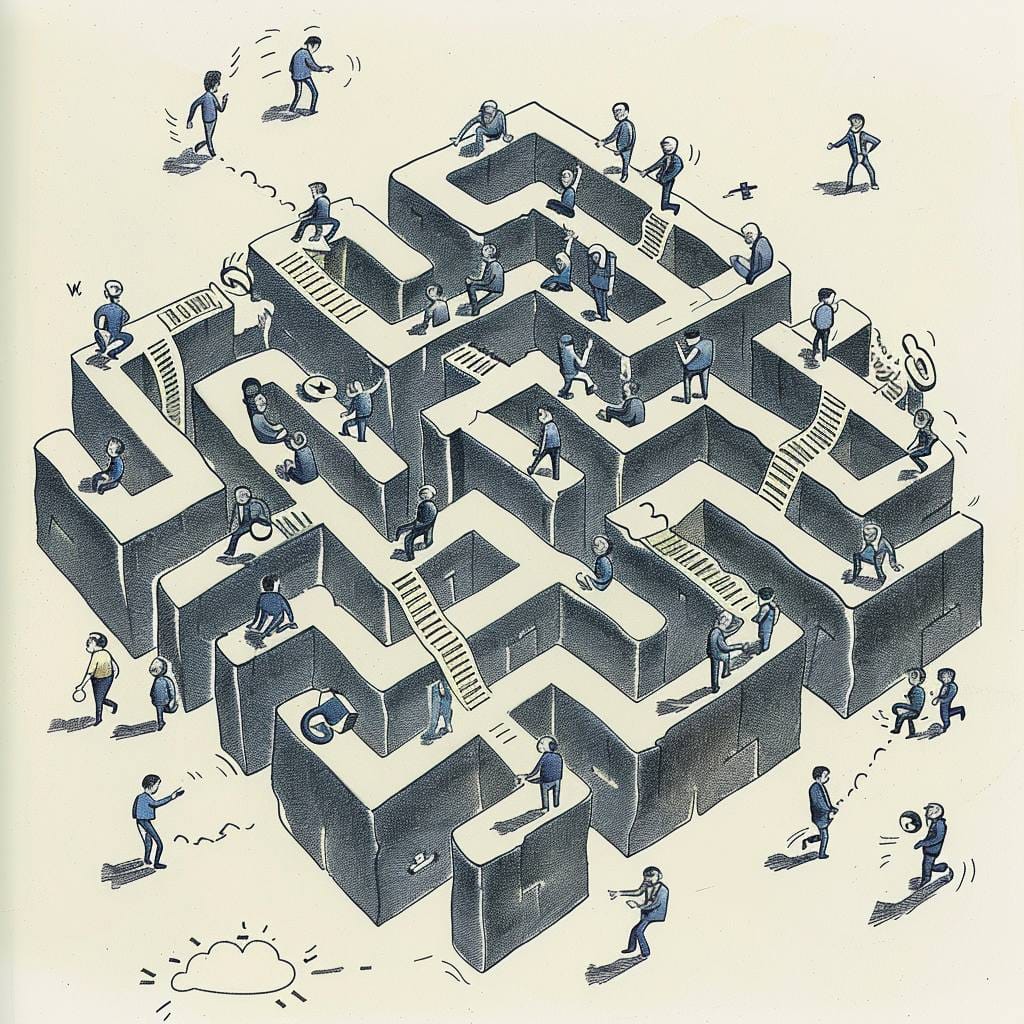
Since mid-June, internet usage in Myanmar has become chaotic, particularly when it comes to accessing Facebook. This turmoil began when VPNs were technologically blocked in the country. What were the consequences and impacts of this VPN blockade?
Myanmar's Internet Trend
In Myanmar, the term "internet" is virtually synonymous with Facebook for most people. If you were to ask about websites that people know and use, you might wonder if Channel Myanmar, a movie upload site, is the only one they're familiar with. Even when people read news on Facebook pages of media outlets, many are unaware of the actual websites these outlets operate.
This reality stems from Myanmar's need to leapfrog technology due to delayed development. In the past, when other countries were widely using blogs and websites, only a minority in Myanmar could access them due to limited internet and computer availability.
The turning point came after 2011 when internet availability on mobile phones coincided with Facebook's growth, leading to a surge in Facebook users. Consequently, in Myanmar, Facebook became the internet. It's used for everything: buying, selling, advertising, maintaining social relationships, job hunting, employee recruitment, seeking knowledge, and even earning money. Government announcements are made on Facebook too.
Recently, Facebook introduced Threads. While it's gaining popularity internationally, Threads users in Myanmar remain a minority. Among the plethora of social platforms like Instagram, YouTube, TikTok, LinkedIn, VK, Telegram, and Viber, Facebook still reigns supreme in Myanmar.
Information Blackout
U Kyaw Zan (name changed) from Rakhine State laments, "We can't access Facebook like before. It's as if we've been cut off from information. We feel like we don't know anything anymore."
In conflict-prone areas like where U Kyaw Zan lives, access to information is crucial. With Facebook as their primary information source, the VPN blockade has severely impacted their ability to stay informed.
This issue isn't unique to U Kyaw Zan. For many in Myanmar, Facebook is not just the most used social media platform; it's the most accessible information source for everyone. When VPNs were restricted, making Facebook difficult to access, about 70% of users simply vanished from the platform. This vacuum has given rise to a market for VPN sales and, unfortunately, VPN-related scams.
Ko Htun (name changed) from Mandalay explains, "Now we have to buy and use VPNs to access the internet. For those of us who work via Facebook, we have no choice. But with fewer people using Facebook due to VPN issues, we're forced to consider alternatives. It's especially challenging when we hear about VPN usage being monitored. Despite the existence of websites, people in Myanmar aren't in the habit of using them."
Grassroots Corruption
The VPN blockade has thrown social and business communications into disarray. As people switch between VPNs to maintain access, a new problem has emerged: VPN checks in some townships.
Ko Thu Ra Zaw (name changed) from Yankin Township recounts a troubling incident: "They demanded to see our phones for inspection. They questioned why we had VPNs installed, insisting we shouldn't be using them. Someone suggested confiscating the phones, and two out of three were taken."
In rural towns, soldiers on patrol are now confiscating phones found with VPN apps installed. While police officers might be open to explanations, soldiers are reportedly less understanding. These checks, not sanctioned by higher authorities, appear to be grassroots-level attempts at financial gain in a time of weak rule of law.
The Scam Market
Despite the restrictions, people continue to seek out VPNs to access Facebook. This demand has given rise to a VPN scam market. Sellers on Facebook offer VPN services with various subscription lengths, from one month to a year.
While some sellers are legitimate, others are scammers who provide access for a day before disappearing. Ko Bo (name changed) from Mandalay shares his experience: "I bought a VPN when they said it was necessary, but it only worked for a day. Initially, they charged about 9,000MMK for a month. Now, with more sellers, it's down to 3,000MMK. The price has decreased, but the number of scammers has increased."
He warns, "They sell through posts, with fake accounts commenting positively. If you buy, it might work for a day, then stop. When you try to contact them, they're unreachable. There are groups running these online scams. Be careful."
Myanmar's VPN Ripple Effect
The impact of the VPN crisis in Myanmar is significant. Previously, when Facebook was blocked, people used VPNs to bypass the restriction. Now, with VPNs also blocked, the situation has become even more chaotic.
Without VPNs, the flow of information has been severely disrupted. Businesses are scrambling to abandon Facebook and establish a presence on other social media platforms. Training sessions on using alternative platforms are emerging. For digital marketing professionals, this might be the most challenging period yet.
The crisis has also led to negative consequences beyond information access. In addition to VPN scam markets, there are reports of extortion cases using VPN checks as a pretext.
For the already struggling people of Myanmar, this VPN crisis has become yet another burden to bear.
Nwe Oo Ywat War (Y3A)
